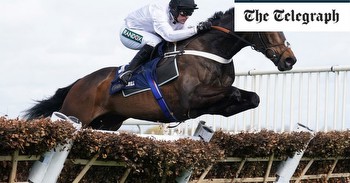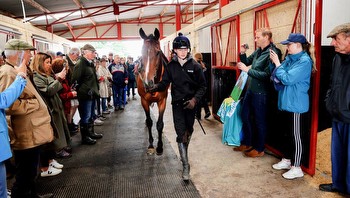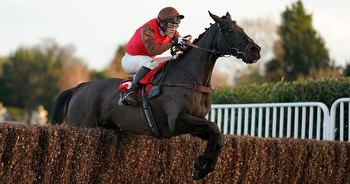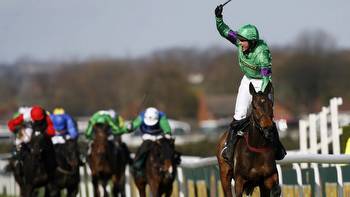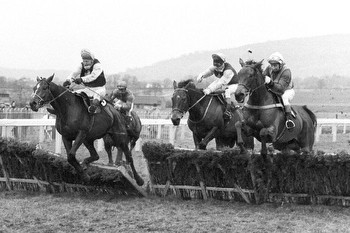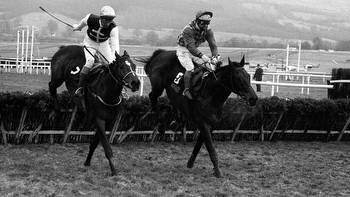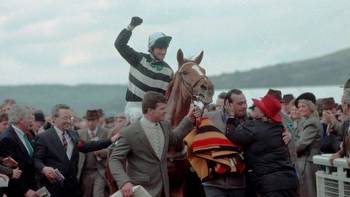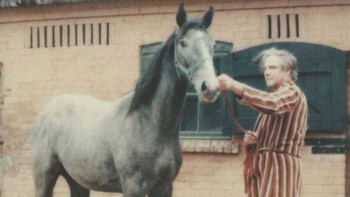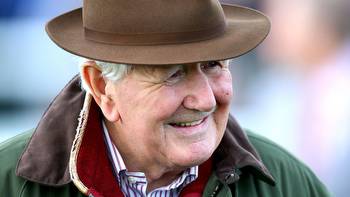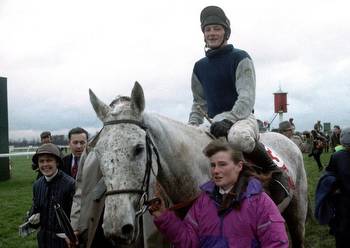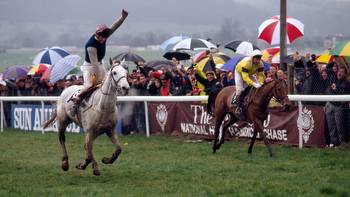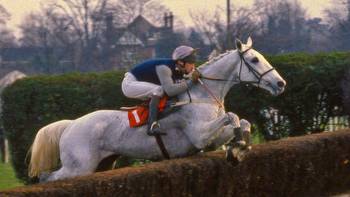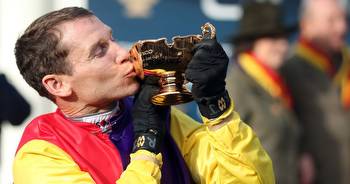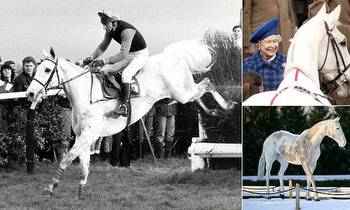Eamonn Sweeney: Cheltenham is the place where the little man still dreams big
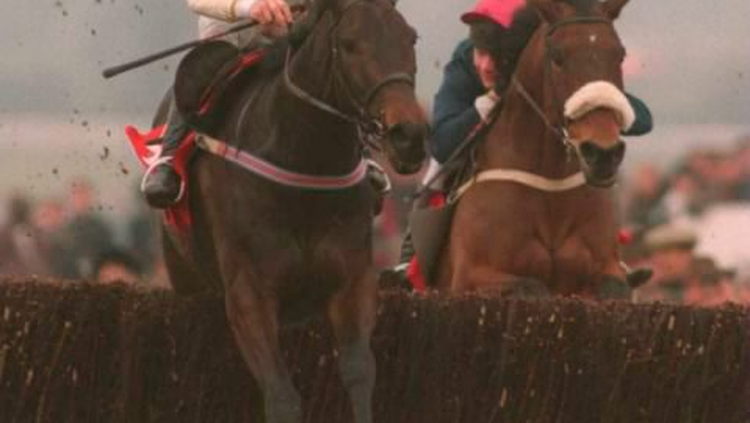
You're either an underdog person or you're not. Some people would agree with US sports executive Charlie Stillitano's argument that Manchester United deserve to be in the Champions League ahead of Leicester City because the former created more of football's wealth than the latter. Some would not. There are those who will be delighted to see Fianna Fáil back in the game. But there are others who got infinitely more joy from the sight of the Healy-Rae brothers socking it to the big parties on election night.
imilarly there are those who will be hoping that Willie Mullins rides roughshod over all opposition at Cheltenham and comes away with a record number of victories. But while I know that such a result will be richly deserved, the truth is that it won't really float my boat. I'll be looking for something different, some proof that small is beautiful, that fairytales can still come true and that the size of the fight in the horse can sometimes overcome the odds. Because in horse racing, as in all other sports, I'm an underdog person.
Blame Billy Boyers. Because in 1977 I suddenly developed an enormous interest in horse racing, following a gift of The Guinness Book of Turf Records from my Uncle Ned in Spiddal. In fact I've probably never been as au courant with the sport since. But back then I had Pacemaker International on order at the local chemists, saved up my pocket money to buy an Irish horse racing annual which included a long list of horses to follow over the coming season and spent long hours mulling over the contenders for that season's classics. (It was the year Lester Piggott moved heaven and earth to get The Minstrel past Hot Grove in the Derby and Dunfermline turned over Alleged in the St Leger after winning the Oaks.)
I was also, as nine-year-olds often are, hypersensitive to mentions of my home county in the media. So when Boyers went over to Cheltenham from Sligo and saddled Kilcoleman, ridden by Tommy Kinane, to win the County Hurdle at 14/1 that year, it was a perfect storm for me. Local connections aside, Boyers was a classic romantic underdog. Kilcoleman wasn't just his first winner at Cheltenham, it was the first horse he'd ever run in England. And to add a picturesque touch, his horses were trained on the sands at his native Rosses Point.
The next couple of years saw another magnificent underdog story, one which ticked all the boxes. The trainer was young, the horse himself had been an utterly unfancied yearling, was unstylish in action and undersized and competing for the second biggest prize at the festival at a time when hurdling was enjoying a golden spell. Yet to watch him was to get emotionally caught up in his fate. Monksfield seemed like a character from National Velvet granted his own movie.
He'd finished second in the Champion Hurdle behind Night Nurse the same year Kilcoleman worked the oracle but it was at the Aintree meeting two and a half weeks later that the little warrior served notice that he might be something very special. Taking on his Cheltenham conqueror, Monksfield simply refused to give way on the run-in and the result was that rarest of occurrences, a dead heat.
In 1978 he won his first Champion Hurdle but it was perhaps his 1979 victory which epitomised Monksfield's greatness. When a much fresher looking Sea Pigeon cruised past Monksfield on the home turn it looked only a matter of what distance the English challenger would win by. Yet in a finish oddly reminiscent of the one Dawn Run would produce seven years later in the Gold Cup Monksfield, with Dessie Hughes on board, rallied for a victory based on sheer gutsiness.
The horse wasn't just a hero, he was an unlikely hero, bought for just 740 guineas as a yearling by Des McDonogh, who was still just 31 when Monksfield won his first Champion Hurdle.
Then there was that style of his. Monksfield never looked entirely comfortable and when he battled his opponents you could see every ounce of the effort he was putting in. He might have been one of the greatest hurdlers of all-time but somehow Monksfield always felt like an underdog.
Like the rest of you I get a special kick when an Irish horse passes the post first in the Cotswolds. But not all my great underdog experiences involve Irish horses. Take the 1990 Gold Cup for example. I was living in England at the time and in the run-up to that year's Cheltenham you couldn't get away from the phenomenal popularity of Desert Orchid, bidding to become just the third horse in 40 years to win a second Gold Cup on the trot. Dessie was like an equine version of the Queen Mother.
Yet while all around me gnashed their teeth as Desert Orchid was beaten into third place by Norton's Coin, I was delighted. For one thing the horse was 100/1, the longest priced winner in the race's history. And for another his back story was just as unlikely as his price. Norton's Coin was one of just three horses owned by Sirrel Griffiths, a Welsh dairy farmer who'd milked the cows that morning before setting out for Cheltenham. Griffiths' story sadly seemed to get lost amid all the disappointment over the eclipse of the odds-on favourite. But he's probably the only man to have bred, owned and trained the Gold Cup winner. "I had to get someone in to do the work that evening," he recalled.
Six years later another partnership of unlikely heroes came up trumps in the blue riband. Imperial Call was in the unusual position for a Cheltenham challenger of not even being a thoroughbred due to some uncertainty about his ancestry. And his trainer, Fergie Sutherland, had lost his left leg to a landmine explosion during the Korean War. His military career curtailed, Sutherland fetched up in Cork, where he trained horses from his ancestral home of Killinardrish House. But until Imperial Call contested the 1996 Gold Cup the trainer had never even sent a horse to Cheltenham. The victory which followed was particularly sweet as it brought a decade of Irish failure in the big race to an end.
It might seem that such out of the blue victories are rarer than they once were and it is true that the bigger trainers dominate more now than they have in the past. But last year's Gold Cup win for Coneygree was a reminder that the unlikely can still happen. Coneygree was, after all, having just his fourth ride over fences, was piloted by a jockey, Nico de Boinville, having his first Gold Cup ride and came from the stables of Mark Bradstock, a family-run operation with just eight horses on the books. Only those wearing their nationalist blinkers could deny the extraordinary nature of that achievement.
The outsider I'm rooting for this year isn't a small stable or an unfancied runner, it's a jockey. Because ever since Victoria Pendleton began her efforts to make it as a jockey she's been subjected to a stream of ridicule and condescension which would have discouraged a lesser character. It's hard not to think that sexism is at the root of it. You certainly can't imagine Chris Hoy facing the same kind of criticism if he'd traded in his bike for a horse. But Pendleton has had to endure endless mansplaining as to why she doesn't belong on a racecourse. It reminds me of Dave Bassett and the like suggesting that women referees simply didn't belong in soccer. Common sense, innit?
Yet the Olympic gold medallist has persevered and earlier this month won her first race, on Pacha Du Polder at Wincanton. "Great achievement in such a short time, she should be very proud #Greatforthesport," tweeted AP McCoy, showing that he's lost none of his class since retiring.
The generous responses of the likes of Jonjo O'Neill and Jessica Harrington are also in stark contrast to the cynicism of the journalistic nay-sayers.
Pendleton goes on Pacha Du Polder in the Foxhunters Chase on Friday. The horse is 16/1 and some of the online betting sites have her odds on to fail to complete the race. But she deserves a chance. Maybe she'll go at the first fence. Or maybe she'll win.
This is Cheltenham. Anything can happen.











